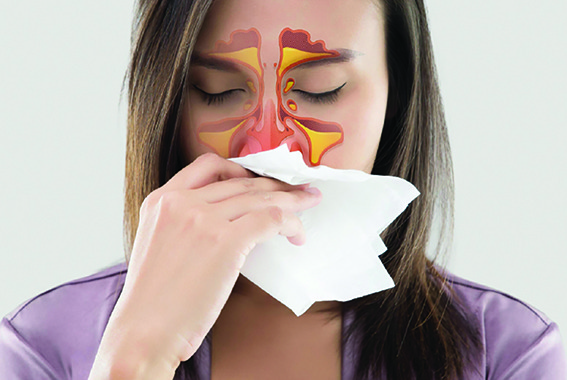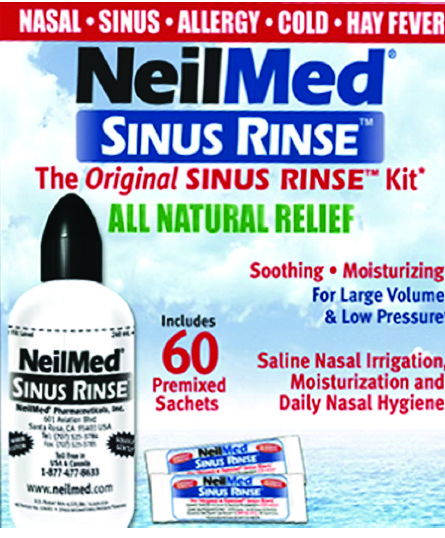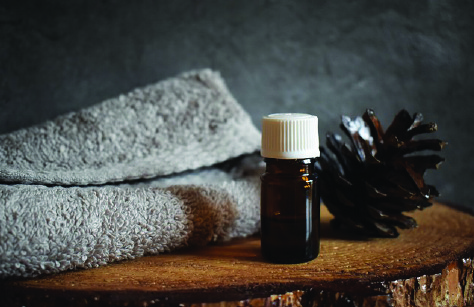
Sinus issues in Traditional Chinese Medicine (TCM) are understood as imbalances of the body’s vital energy (Qi), often influenced by both internal and external factors, rather than just local infections or blockages as in Western medicine.
Body & Environment Interaction Environmental Influence: Common triggers include weather changes, pollution, allergens, and seasonal shifts, which TCM interprets as invasions of Wind, Damp, or Heat. The body’s constitution (tendency toward heat, cold, etc.) affects how it responds to these influences.
Emotions: Emotional states can affect organ function—worry may weaken the spleen (affecting mucus), sadness may injure the lungs (reducing defence), and anger can trap Qi, leading to head and facial pressure. Typical Symptoms & Patterns from a Chinese medicine perspective Heat: Thick, yellow discharge, redness, swelling. Cold: Clear, watery mucus, congestion, and pain. Dampness: Heavy sensation, swollen sinuses, sticky mucus. Chronic Sinusitis: Usually involves “Dampness” and “Phlegm,” overlapping with Western ideas of persistent congestion and inflammation.
TCM Treatment Basics Herbal Formulas expel pathogens (like Heat or Dampness), drain mucus, and strengthen underlying organ weaknesses. If symptoms are severe, recurrent, or not improving, consult a qualified TCM practitioner for individualised assessment and herbal guidance. Many TCM herbs can interact with medications or cause allergic reactions if used inappropriately; professional guidance is strongly recommended.
Acupuncture Acupuncture targets specific points to open sinuses, clear blockages in energy channels, and restore balance. Acupressure on points like Bi Tong, Large intestine 20 (beside the nostrils), and Yin Tang (midway between eyebrows) using fingertips may offer home relief. Lifestyle and dietary advice are often given to support spleen and lung health, such as avoiding cold or damp foods. This approach emphasises restoring the body’s overall balance and resilience, not just treating the local sinus symptoms.
Foods that can trigger Sinus Excessive dairy products, refined sugars, alcohol, gluten, processed foods, and foods high in saturated fats do create problems for your sinuses. If you phase out or reduce these you will notice a major improvement. Essential Oils Several essential oils are commonly used to help relieve sinus infection symptoms, particularly congestion, inflammation, and sinus pressure. Essential oils should be used as complementary approaches, not a replacement for medical therapy in cases of persistent or severe sinus infections. Some oils, especially tea tree, should not be inhaled directly and must always be diluted. Please do a skin patch test before first use and consult with a healthcare professional if you have allergies, asthma, or chronic sinus problems The most frequently recommended oils and their properties include: Eucalyptus oil: Contains Cineole, which acts as a decongestant, helps clear mucus, and may have antimicrobial properties. Peppermint oil: The menthol in peppermint oil provides a cooling effect, soothes sinus pressure and headaches, acts as an expectorant, and offers mild antibacterial and anti-inflammatory effects. Tea tree oil: Valued for its anti-inflammatory, antibacterial, and antiseptic properties. It may reduce swelling but should not be inhaled directly due to safety concerns.
\rosemary oil: May offer anti-inflammatory effects and support respiratory health.
Application methods: Steam inhalation: Add a few drops (typically 20) of essential oil to 2 litres hot water, drape a towel over your head, and inhale the vapours while keeping your eyes closed for 10 minutes.
Sinus Saline rise Using a saline Sinus rise morning and evening can also prevent the accumulation of mucus and airborne dust particles, when you have cleared the nasal cavity make sure to dry the inner part of the nose to ensure the wet area is dried properly. A Zinc Deficiency can also cause problems in the mucus membranes in the respiratory tract. Exposure to air borne allergies such as dust mites, pollens, moulds, perfumes, aerosols, chemicals, animal dander and natural feathers. Warm compresses applied gently over the sinus areas may alleviate discomfort, particularly if the condition is due to “cold.
In Wellness
Susan


